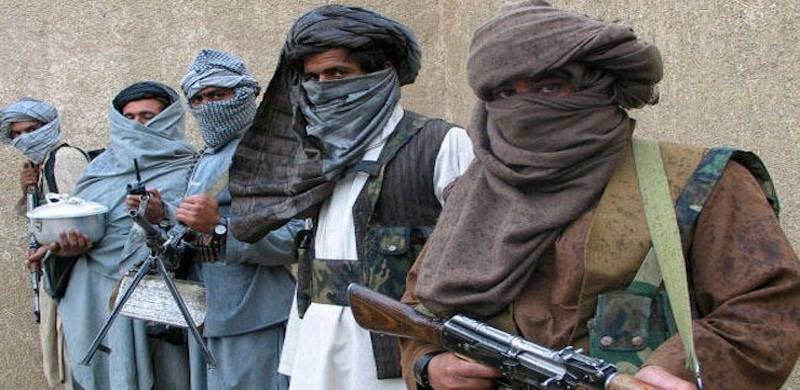
The peace talks between Pakistani authorities and banned terrorist organisation Tehreek-e-Taliban Pakistan (TTP) are less likely to succeed. Despite the militant group’s confirmation of the ‘ceasefire’, the UNSC report on Afghanistan released last Thursday is one reason not to expect restoration of peace from the ongoing talks. During the first round of negotiations late last year, the TTP and the Pakistani government agreed to a ceasefire that lasted a month. Pakistan agreed to release 102 TTP hostages in response to this proposed agreement. According to unconfirmed reports, several high-profile terrorists, including TTP Swat's face, Muslim Khan, have been pardoned and released by Pakistan in return.
The TTP wielded significant influence in Pakistan's rhetoric even before its formal establishment — by virtue of its involvement in the siege of Lal Masjid in July 2007 and the attack on Army Public School in Peshawar in December 2014 when the militant group slaughtered 150 people, mostly students. Coercing, intimidating and killing those who stood in its way were only some of the tactics the group used. Since August 2021, TTP, the Pakistani branch of the Taliban, has repeatedly attacked Pakistan from its new safe havens in eastern Afghanistan, drawing Pakistani military airstrikes and prompting Sirajuddin Haqqani, who is now a Taliban cabinet minister, to reprise his role as a peace mediator between the two sides.
The recent revival of the group indicates that after gaining political clout from the Afghan Taliban, the TTP has expanded its violent activities. Al Qaeda, the terrorist organisation behind the September 11, 2001, attacks, has also been resurrected in the wake of the Taliban's return to power in Afghanistan, which they are using to gain haven, attract new members, and raise funds for their never-ending ‘jihad’. Pakistan's security and peace are in jeopardy because of this nexus between TTPa and the Afghan Taliban.
The majority of the escalating militant threat in Pakistan now emanates from Afghanistan, where the Taliban are sheltering an al Qaeda affiliate that seeks to overthrow the Islamabad government. According to the report, the TTP has up to 4,000 armed members stationed in the Afghanistan-Pakistan border region. It has taken up 17 previous affiliates during the past two years. The group is committed to a long-term struggle against the Pakistani government, indicating that ceasefire agreements have a low probability of success. The peace agenda reportedly included eight negotiating objectives between the TTP and the Pakistani military establishment. Four of the eight issues have been agreed upon, while four remain disputed. Peace is necessary, especially in Pakistan's war-torn former tribal belt, but there must be a distinction between peace and capitulating to militants' demands. In addition, the state must be explicit regarding the amnesty's scope. Will persons responsible, for instance, for the deaths of tens of thousands of Pakistanis be ‘forgiven’ with a stroke of the pen? It will indeed have a destructive impact.
Most importantly, Pakistan is increasing the bargaining position of TTP. Security experts are sceptical about the peace talks in light of previous failed agreements between the TTP or its supporters and the Pakistani government. Amir Rana, the security analyst and director of the Pakistan Institute for Peace Studies (PIPS) in Islamabad, asserted: "All of these settlements will not result in the demise of the TTP in this region.”
He added that the group will still have ambitions and believe that this ceasefire and these talks are part of a war strategy. According to them, this is not the war's conclusion, but rather a continuation of it." Another senior expert, Dr Asfandyar Mir, stated that the TTP has ambivalent views regarding a ceasefire. There is a chance that they are using the ceasefire to strengthen their position on the battlefield and to free top prisoners of the group. Given their nature due to the sectarian orientation of the TTP's 'objectives,' it will be exceedingly challenging to integrate them into the mainstream society. The fundamental dogmas of the TTP's ideology contradict Pakistan's Constitution. Is Pakistan committed to implementing and upholding a strict interpretation of Sharia law? Otherwise, the TTP will wage jihad against Pakistan's government and security forces. According to its ideology, the TTP's ultimate objective is to overthrow the Pakistani government and establish a caliphate in the country.
Security experts are sceptical about the peace talks in light of previous failed agreements between the TTP or its supporters and the Pakistani government.
In addition, the most recent development is the continued alliance between Al-Qaeda and the TTP. According to Ali Mohammad Ali, a New York-based researcher and security expert who formerly collaborated with the Afghan government, al Qaeda has shifted its strategy from "confrontation with its perceived enemies" to "enabling proxies such as the Afghan Taliban, the Pakistani Taliban, Kashmiri jihadist groups against India, Ansarullah of Tajikistan, and the Islamic Movement of Uzbekistan to recruit and wage jihad against states in the region." The Pakistani military should recognise that the TTP's goals are primarily ideological and that they can eliminate the terrorists but not their religiously-based ‘philosophy’. Their dogmas are rooted in Pakistan's culture and have been bolstered by Pakistan's poor governance and the Afghan Taliban. The military operations in tribal areas expanded the scope of their conflict.
Consequently, Pakistan's military should recognise its limitations. They can carry out a plan, but they cannot formulate a ‘policy’ that would produce results based on a lasting peace. However, terrorist organisations such as the TTP result from their failed ‘strategies.’.
Therefore, neither negotiations nor amnesty will improve the situation for the TTP. The need of the hour is to articulate a 'political strategy' by involving political actors through the parliament in order to counter the multidimensional threat posed by the militant group.

